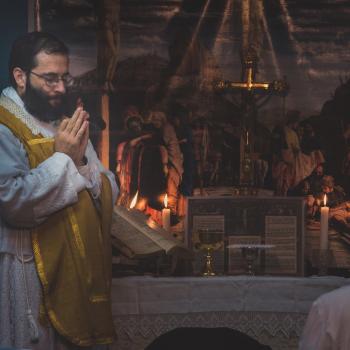
Those of you who follow me, may have noted that I have taken a clear stance on Amoris Laetitia. Today, the first half of my more academic take on the topic came out. This is one of the most complete explanations of chapter VIII to date.
The document does not allow Communion for the Divorced and remarried who intend to continue relations. Pope Francis does want to offer more help to those who struggle but he is still clear that intending to commit a mortal sin means you can’t be absolved or receive Communion.
Crux Summary
A while back, I wrote a summary in Crux.
Contrary to popular opinion, the text of Amoris Laetitia does not allow those flagrantly or intentionally having marital-like relations in a “second marriage” to receive absolution or Communion.
However, Francis emphasizes mercy for those who are either ignorant, or who intend to abstain from sexual relations but occasionally fail. Francis’s emphasis on mercy seems to come from a stronger emphasis on the wound of original sin in his anthropology.
If you want a summary go read it.
H&PR Longer Version
Today, the first half of my longer explanation of this got published in Homiletic and Pastoral Review. This half makes the positive argumentation and the second half (published later) will take up objections.
Francis clearly does not intend to make new rules. Near the beginning of the controversial chapter eight he declares, “Neither the Synod nor this document could be expected to provide a new set of general rules, canonical in nature and applicable in all cases.”
In the lines that follow, Francis discusses the need to accompany those in “second marriages” and similar situations, and discern how and when to show them the reality of their sin. However, the Pope clarifies what he means by discernment: “Discernment can never prescind from the Gospel demands as proposed by the Church.” Then he gives criteria for discernment that sound straight out of an Ignatian guide on the topic: “Humility, discretion and love for the Church and her teaching, in a sincere search for God’s will and a desire to make a more perfect response to it.” Thus, no matter what he says about discernment anywhere in the document, he has set up existing Church teaching as a fence around what can be discerned. Discernment is a process of deciding spiritually what to do — like deciding which prayers to say daily — but a basic pre-condition for proper discernment is that it cannot go outside Church teaching.
Please go read the whole article there. It may get a bit academic at times as it is written for an audience trained in theology, having 44 academic footnotes and almost 5,000 words.
We need to proclaim the truth about Amoris Laetitia and not get caught in debates with wrong premises.
Note: please consider sponsoring me on Patreon as articles like this take time to write and nobody pays me to do so.












